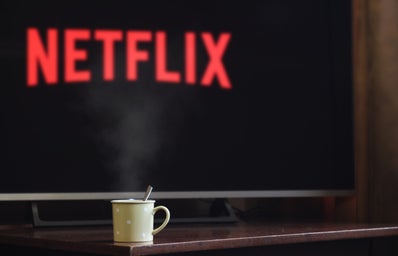*Content Warning: This article contains mention of murder, rape, sexual trauma, homophobia, cannibalism, necrophilia, and racism*
If you haven’t heard already, Netflix have recently released a ten-part series called Monster: The Jeffrey Dahmer Story. Following the release, Ryan Murphy and Ian Brennan have received backlash from both the victims’ relatives and the public. The consensus is that the series should not have been created in the first place as it fictionalises the real-life murderer and exploits the trauma of the victims’ families.
Who is Jeffrey Dahmer?
Jeffrey Dahmer, born in 1960, was an infamous murderer, sex offender and cannibal from Milwaukee, Wisconsin. Dahmer dismembered seventeen of the innocent victims and committed necrophilia, leaving the families traumatised. The victims were male, and often African American, Asian or Latino. Two of his victims, James Doxtator and Konerak Sinthasomphone, were only 14.
Backlash from the victims’ families:
After Netflix’s release, many of the victim’s friends and family came out and stated that they did not consent to the making of the series. Not only did they not consent, but instead they have had their real-life trauma exploited to the public as if it was a fictional show. According to NY Times who spoke to Ryan Murphy, he spent three and a half years researching the story and reached out to at least 20 friends or family members of the victims. Although he couldn’t reach them, nor did he get their permission, he believed that it was “an obligation to history”.
Eric Perry, the cousin of the victim Eroll Lindsey, retweeted a video that surfaced on Twitter of Netflix’s version of Rita Isbell (Lindsey’s sister) in the courtroom compared to the real footage.
The Guardian also spoke to the mother of the victim Tony Hughes, an aspiring model, who appears in the episode ‘Silenced’. Shirley Hughes, the grieving mother, has had to relive the traumatic events that ruined her, and her family’s lives since Netflix’s release. She claims that the show portrayed the story wrong, saying “it didn’t happen like that”. Following the statement, she expresses her anger and the exploitative nature of the series, adding “I don’t see how they can do that”.
The L.G.B.T.Q Tag:
Among the controversy lies the problematic nature of Dahmer being categorised in the LGBTQ section on Netflix. Although it has now been removed, Ryan Murphy was not against it, in fact, he agreed with it. The New York Times spoke to Murphy, showcasing his claim that “not all gay stories have to be happy stories. There was a moment on Netflix where they removed the L.G.B.T.Q tag from ‘Dahmer’, and I didn’t like it”. His train of thought continues whereby he states “it was a story of a gay man and more importantly, his gay victims”.
The homophobia and racism that pervades the case is truly horrifying and highlights how badly the police handled each case. Throughout the series, homophobia is an essential part of how the police responded to Dahmer’s behaviour. In episode two, the police walk into Dahmer’s apartment after a call was made, and the officers ask “are there any gay stuff? Don’t want to catch anything”. They go on to claim that they “got to go take a shower” after leaving his house. According to NY Times, Murphy asserts that it “examines how easy it is to get away with things with the white privilege aspects” and that he wanted to shed light on the racism and homophobia that pervaded the case.
Murphy responds to the backlash by asking “what are the rules now? Should we never do a movie about a tyrant?”. However, many people have argued that true crime dehumanises its victims and is a capitalist motivation, making a profit off deep-rooted trauma and unthinkable acts of murder. Not only that, but it glorifies the killer.
The Fictionalisation, Exploitation and Capitalisation of the Series:
The Netflix series undoubtedly fictionalises a serious, real, traumatic story. With Evan Peters, a notoriously liked actor, playing Dahmer, people are bound to be upset. Arguably, given Peter’s good looks and likeable personality, the show has been dramatized and romanticised in a sense, glorifying the killer. There are moments in the series that portray Dahmer as the victim, showing his tough childhood and his inability to make friends. At some points, this allowed the viewers to feel sympathy for the murder. However, for the victims’ families, this would be horrifying.
It is important to remember that Jeffrey Dahmer is a real killer, not a fictional character. However, with its prevalence in pop culture, some people decided to capitalise from his ‘character’ by making it trendy. According to CBS news, ‘the hit Netflix series about Jeffrey Dahmer has sparked enough public interest that some retailers are selling Halloween costumes meant to evoke the notorious serial killer’. It is also worth mentioning that many popular songs have included Dahmer in them. For example, Katy Perry’s song Dark Horse includes the lyrics “she eat you heart out like Jeffrey Dahmer”, or Ke$sha singing “be too sweet and you’ll be a goner. Yeah, I’ll pull a Jeffrey Dahmer”, in Cannibal. It appears that the buzzword ‘Dahmer’ has become a money-making scheme.
Let’s stop making ‘Dahmer’ a trend, and let’s stop capitalizing on murder and the exploitation of victims.


